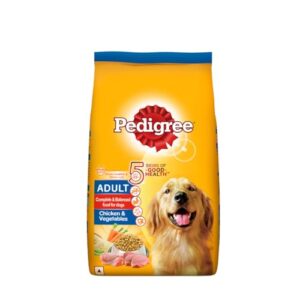Shop
Showing 1–9 of 18 results
-
Sale!

Drools Adult Wet Dog Food, Real Chicken And Chicken Liver Chunks In Gravy, 15 Pouches (15 X 150G), 1 Count
Original price was: ₹525.00.₹430.00Current price is: ₹430.00. Buy Now -
Sale!

Drools Kitten(1-12 Months) Dry Cat Food, Ocean Fish, 1.2Kg With Free Container, 1 Count
Original price was: ₹340.00.₹306.00Current price is: ₹306.00. Buy Now -
Sale!

Foodie Puppies Dog Training Kit - Combo of Training Stick & 2in1 Whistle Clicker for Dog | Professional Dog Training Equipment for Small, Medium & Large Dogs (Flute Clicker + Stick)
Original price was: ₹499.00.₹199.00Current price is: ₹199.00. Buy Now -
Sale!

Let’s Bite Active Kitten Dry Cat Food, Fish Flavor, 400gm (Buy 1 Get 1 Free)
Original price was: ₹199.00.₹179.00Current price is: ₹179.00. Buy Now -
Sale!

Meat Up Adult Dog Food 3 Kg (Buy 1 Get 1 Free ), Total 6 kg
Original price was: ₹789.00.₹765.00Current price is: ₹765.00. Buy Now -
Sale!

Meat Up Kitten(1-12 months) Dry Cat Food, 1.2 kg Ocean Fish(Buy 1 Get 1 Free), Total 2.4 kg,Pack of 2
Original price was: ₹450.00.₹432.00Current price is: ₹432.00. Buy Now -
Sale!

Pedigree Adult Dry Dog Food, Chicken & Vegetables, 3kg Pack
Original price was: ₹810.00.₹653.00Current price is: ₹653.00. Buy Now -
Sale!

Pedigree Adult Wet Dog Food, Chicken & Liver Chunks in Gravy, 70 g (Pack of 30)
Original price was: ₹1,500.00.₹1,140.00Current price is: ₹1,140.00. Buy Now -
Sale!

Pedigree Dentastix Dog Treat Oral Care For Adult Medium Breed (10-25 Kg), (28 Sticks) 720G Monthly Pack, Chicken
Original price was: ₹800.00.₹704.00Current price is: ₹704.00. Buy Now
